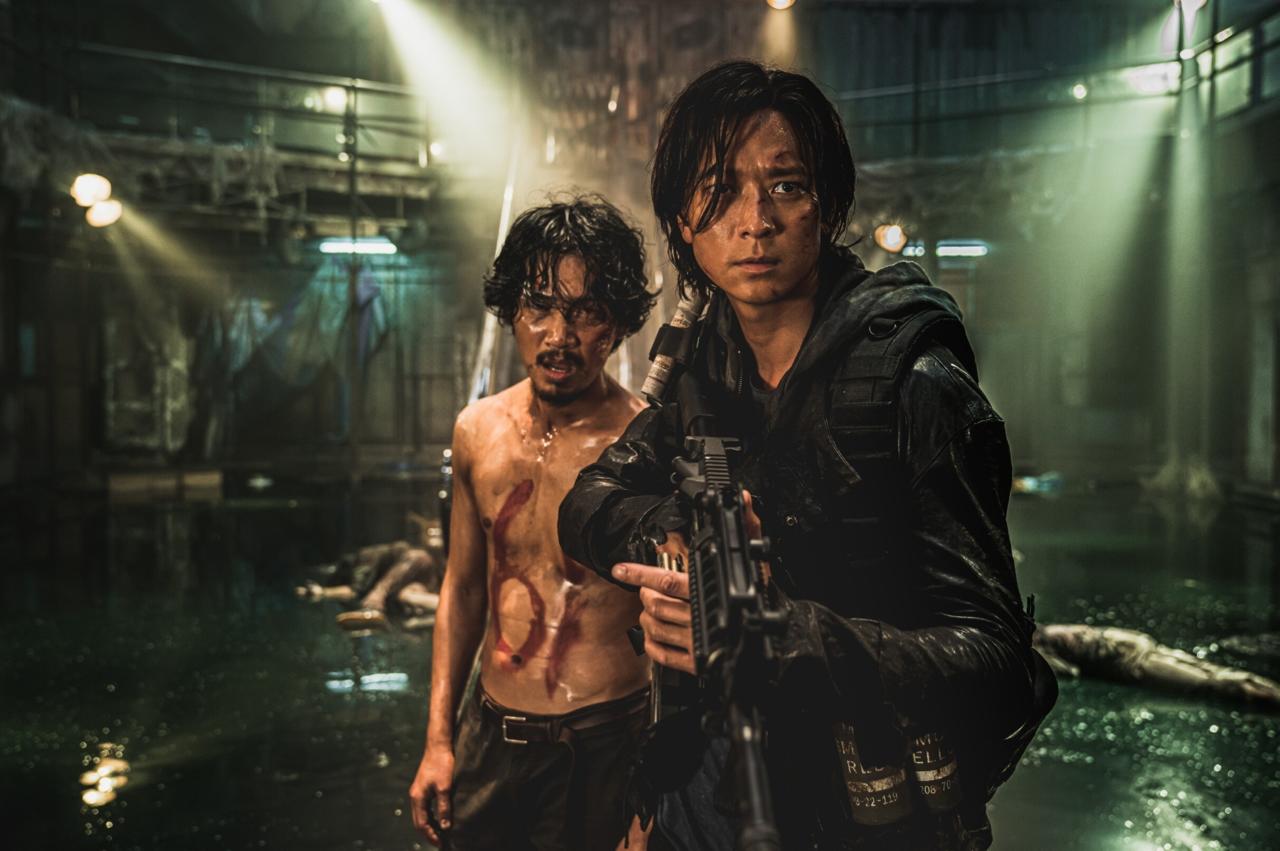If the success of the movies Resident Evil and 28 Days Later in the early 2000s kickstarted a resurgence the zombie genre, then the record-breaking popularity of The Walking Dead in the following decade brought it straight into the mainstream. By 2016, it was hard for movies and shows to do anything new with the undead. The South Korean movie Train to Busan was a rare exception--this fast moving thriller didn't set out to reinvent the genre, but by giving it a great setting for its zombie mayhem (a high speed train), and by ensuring the characters and drama were as strong as the action and horror, it found huge worldwide success.
An animated Train to Busan prequel titled Seoul Station was also released in 2016, and now we have the follow-up movie. Peninsula is directed by Yeon Sang-ho once more, and while the film's setting is very much the world of the first movie, that's really the only link to the original. This is a standalone film, with a very different location, story, and collection of characters.
The plot is straightforward. In the four years since the zombie virus infected South Korea, the entire Korean peninsula has been annexed--no one gets in or out. An enterprising American gangster living in Hong Kong learns of a huge stash of US dollars trapped in a truck in the Korean city of Incheon, so he hires a team of assorted misfits to retrieve it from the peninsula. The team is led by former soldier Jung-seok (Gang Dong-won), who is tormented by the loss of his sister and her daughter years earlier, and inevitably things go wrong soon after the money is found.
Ahead of Peninsula's release, Yeon spoke of his plans to make a movie with a much bigger scale than Train to Busan. He definitely succeeded in this. From the early scenes of chaos on a ship to the wide shots of the now deserted and half-destroyed Incheon, Peninsula deliberately goes the other way from Train to Busan's claustrophobic terror. This is a big, expensive-looking zombie movie, perhaps the biggest in the genre since 2013's World War Z.

But while Peninsula is an impressive-looking film, Yeon fails to do anything very interesting with the scale and budget. There are some extremely obvious influences at work here--a dangerous mission into a sealed off post-apocalyptic city is straight out of John Carpenter's Escape from New York, while the team of rogue soldiers living in the city are reminiscent of the villainous military in George Romero's Day of the Dead. Along the way we have some wild car chases and a Thunderdome-style death arena á la Mad Max, and a shopping mall setting that is presumably a homage to Dawn of the Dead. While it's notable that Yeon has taken more influence from '80s post-apocalyptic action movies than the horror genre, his failure to bring anything new to these elements only serves to remind how much more impressive these earlier films were. It's not surprising that Yeon has opted for a new story--making a sequel set on another train (or maybe a bus this time) was never going to work. But unfortunately the route he has taken this time feels disappointingly uninspired and derivative.
One of Train to Busan's greatest strengths was its genuine emotional power. Yeon spent time building sympathetic characters with believable relationships, so that when the mayhem began and people started dying, it really mattered. He attempts the same thing here by giving Jung-seok a tragic backstory, and by foreshadowing his later encounter with a woman named Min-jung (Lee Jung-hyun), who still lives on the peninsula with her two children and her father. But it's set up too quickly, and Yeon uses the shorthand of familiar clichés rather than developing a truly empathetic situation. It all climaxes in an emotionally overwrought final scene that is more laughable than moving.
Thankfully, Yeon's skills as an exciting, kinetic filmmaker remain intact. The skirmishes with running, snarling zombies throughout the deserted streets of the city are grippingly shot and edited, and there are plenty of the huge zombie hoards that made for some of Train to Busan's most striking scenes. And while we've seen post-apocalyptic death arenas many times before (including a zombie one in Romero's Land of the Dead), those scenes in Peninsula are enjoyably tense and bloody. There is some much appreciated humor too, mostly involving Min-jung's two resourceful young daughters, who are far better equipped to deal with the zombie apocalypse than most of the adults.
Had Peninsula been released as a standalone zombie action movie, with no link to a far superior predecessor, the movie might just have seemed like a derivative but reasonably entertaining slice of blockbuster horror entertainment. But it's hard not to compare the two, especially with the addition of "Train to Busan Presents" to the US title making the link so blatant. If a third film follows--and the success of Peninsula in South Korea suggests it might--then hopefully Yeon will find something more interesting to do with his zombies.